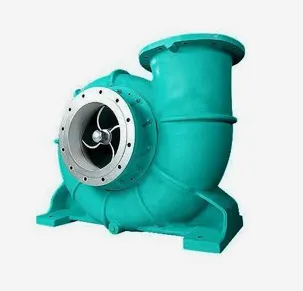Italian
- Afrikaans
- Albanian
- Amharic
- Arabic
- Armenian
- Azerbaijani
- Basque
- Belarusian
- Bengali
- Bosnian
- Bulgarian
- Catalan
- Cebuano
- Corsican
- Croatian
- Czech
- Danish
- Dutch
- English
- Esperanto
- Estonian
- Finnish
- French
- Frisian
- Galician
- Georgian
- German
- Greek
- Gujarati
- Haitian Creole
- hausa
- hawaiian
- Hebrew
- Hindi
- Miao
- Hungarian
- Icelandic
- igbo
- Indonesian
- irish
- Italian
- Japanese
- Javanese
- Kannada
- kazakh
- Khmer
- Rwandese
- Korean
- Kurdish
- Kyrgyz
- Lao
- Latin
- Latvian
- Lithuanian
- Luxembourgish
- Macedonian
- Malgashi
- Malay
- Malayalam
- Maltese
- Maori
- Marathi
- Mongolian
- Myanmar
- Nepali
- Norwegian
- Norwegian
- Occitan
- Pashto
- Persian
- Polish
- Portuguese
- Punjabi
- Romanian
- Russian
- Samoan
- Scottish Gaelic
- Serbian
- Sesotho
- Shona
- Sindhi
- Sinhala
- Slovak
- Slovenian
- Somali
- Spanish
- Sundanese
- Swahili
- Swedish
- Tagalog
- Tajik
- Tamil
- Tatar
- Telugu
- Thai
- Turkish
- Turkmen
- Ukrainian
- Urdu
- Uighur
- Uzbek
- Vietnamese
- Welsh
- Bantu
- Yiddish
- Yoruba
- Zulu
Telephone: +86 13120555503
Email: frank@cypump.com
Ott . 21, 2024 09:30 Back to list
Efficient Cement Slurry Grouting Pump for Construction and Repair Applications
The Importance and Functionality of Cement Slurry Grouting Pumps
Cement slurry grouting pumps play a vital role in modern construction and civil engineering. These specialized pumps are designed to facilitate the injection of cement-based slurries into various applications, including soil stabilization, groundwater control, and structural repairs. Their significance cannot be understated, as they ensure durability, stability, and longevity in construction projects.
The Mechanism of Cement Slurry Grouting Pumps
Cement slurry grouting pumps operate through a process of transferring a cement-water mixture, known as grout, under pressure to specific locations. The typical composition of grouting material includes Portland cement, water, and sometimes additives to improve workability or setting time. The pump generates a high pressure, enabling the grout to flow through hoses and reach even the most challenging injection points.
There are typically two types of pumps used in cement slurry grouting positive displacement pumps and centrifugal pumps. Positive displacement pumps are preferable for grouting applications due to their consistent flow rate and ability to handle the thick, viscous nature of cement slurries. These pumps can be further classified into piston pumps and diaphragm pumps, both of which offer reliable performance and efficiency.
Applications in Construction
Cement slurry grouting is integral to several construction applications. One significant use is in foundation underpinning. As buildings settle over time, the soil beneath may loosen, threatening the integrity of the structure. By injecting cement slurry into the soil, engineers can stabilize it, preventing further movement and ensuring the foundation remains solid.
Another critical application is in the repair of concrete structures. Over time, concrete can develop cracks and fissures due to various factors, including environmental exposure and structural stress. Grouting these defects with cement slurry allows for a seamless restoration of strength and durability, thus extending the life of the structure significantly.
Additionally, cement slurry grouting is utilized in tunneling and underground construction to control water inflow. By injecting grout into the surrounding rock or soil, construction teams can create a watertight barrier, thus enabling safer and more efficient excavation processes.
cement slurry grouting pump

Benefits of Using Cement Slurry Grouting Pumps
The advantages of employing cement slurry grouting pumps are numerous. Firstly, they contribute to improved soil properties. The introduction of cement slurry enhances the load-bearing capacity of the ground, making it suitable for heavy constructions such as bridges and skyscrapers.
Secondly, these pumps offer versatility. They can be used in a variety of settings, from urban environments with limited space to rural areas where large-scale injections are required. Their ability to operate efficiently in diverse conditions makes them an invaluable asset in construction projects.
Moreover, the use of pumps reduces labor costs and time associated with manual grouting methods. The automation of the grouting process minimizes human error and enhances consistency in the mixture, leading to better results and reduced wastage of materials.
Future Trends in Grouting Technology
As technology evolves, so do the capabilities of cement slurry grouting pumps. The development of smart pumps equipped with sensors and monitoring systems is an emerging trend. These innovations enable real-time tracking of grouting processes, ensuring optimal pressure and flow rates are maintained throughout the application.
Furthermore, the focus on sustainable construction practices has led to research into eco-friendly grouting materials. These materials aim to reduce the carbon footprint associated with traditional cement, aligning with global efforts towards more sustainable building practices.
In conclusion, cement slurry grouting pumps are essential tools in the construction industry, providing solutions that enhance the integrity and longevity of structures. As the industry advances, these pumps are set to become even more sophisticated, incorporating new technologies and eco-conscious practices. Their ability to adapt to varying applications and environments solidifies their importance in modern civil engineering.
-
High-Performance Air Pumps for Sand & Gravel | Efficient Transport
NewsAug.03,2025
-
ISG Series Vertical Pipeline Pump - Chi Yuan Pumps Co., LTD.|Energy Efficiency, Corrosion Resistance
NewsAug.03,2025
-
ISG Series Pipeline Pump - Chi Yuan Pumps | Energy Efficiency&Compact Design
NewsAug.03,2025
-
ISG Series Vertical Pipeline Pump - Chi Yuan Pumps Co., LTD.|High Efficiency, Low Noise, Durable
NewsAug.02,2025
-
ISG Series Vertical Pipeline Pump - Chi Yuan Pumps | High Efficiency, Low Noise
NewsAug.02,2025
-
ISG Series Vertical Pipeline Pump- Chi Yuan Pumps Co., LTD.|High Efficiency&Compact Design
NewsAug.02,2025










